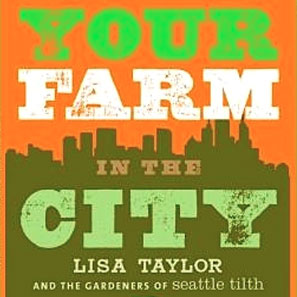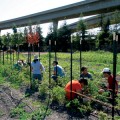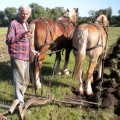As big ag tells it, organic, small-scale agriculture sounds all warm and cuddly, but serious people know that only industrial, petroleum-dependent mega-farms can feed the world. This is nonsense of course. Big ag isn’t currently feeding the world (what are they waiting for?), and a serious addiction to cheap oil raises real questions about the ability of agribusiness to endure.
A new report released by the United Nations blows another hole in the myth that only large-scale agriculture can meet the world’s food demands. The news is being greeted by advocates of sustainable agriculture as a call to arms (or rakes and shovels) in a new agricultural revolution. The study finds that small-scale farmers can double food production in 10 years by using simple farming methods. Stick it up your GMO, Monsanto.
“To feed 9 billion people in 2050, we urgently need to adopt the most efficient farming techniques available,” says Olivier De Schutter, U.N. special rapporteur on the right to food and author of the report. “Today’s scientific evidence demonstrates that agroecological methods outperform the use of chemical fertilizers in boosting food production in regions where the hungry live.”
De Schutter told the Wall Street Journal that natural farming techniques are the only sustainable way to stave off future food crisis. “We set up our farming techniques in the 1920s when we thought there would be a never-ending supply of cheap oil,” he said. “Developing farming in a way which makes it less addicted to fossil energy is much more promising.”
What’s all this have to do with you? Well, you eat, right? You can’t change what’s happening in Washington, D.C., and corporate boardrooms, but you can change what you eat. Better yet, you can grow your own. Your Farm in the City: An Urban Dweller’s Guide to Growing Organic Food and Raising Animals (Black Dog & Leventhal Publishers), a new book by Seattle farmer Lisa Taylor, is a handbook to help would-be urban and suburban farmers get started. The book is an excellent reference for everything from vegetable growing and canning to raising chickens, rabbits, ducks and even goats. “The recent surge of interest in eating locally has inspired city dwellers to see food-growing potential all around them,” writes Taylor. “A grassy lawn with a southern exposure is a wasted opportunity for self-reliance and independence.”
Urban farms like Veggielution in San Jose and Full Circle Farm in Sunnyvale are leading the way, and they’re always looking for volunteers. You become part of the solution by turning away from the problem wrought by industrial agriculture.
For more information check out “Your Farm in the City” by Lisa Taylor. Black Dog & Leventhal Publishers.

 Review: India Chaat Cuisine
Review: India Chaat Cuisine  Food & Wine Events: Mar. 16-23
Food & Wine Events: Mar. 16-23 


